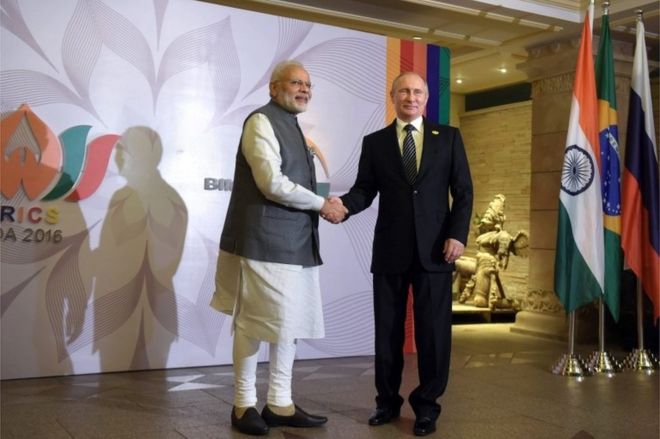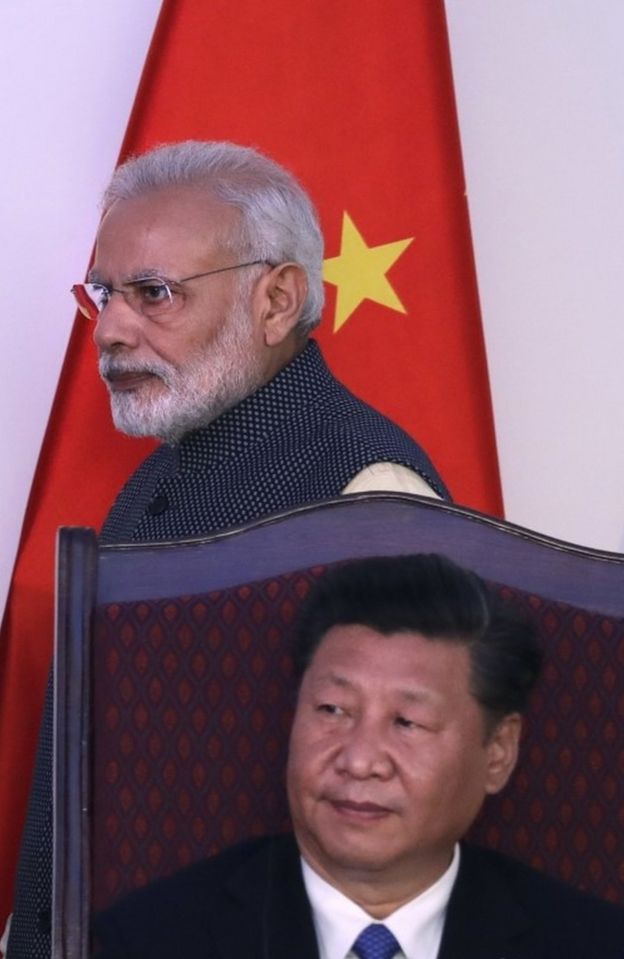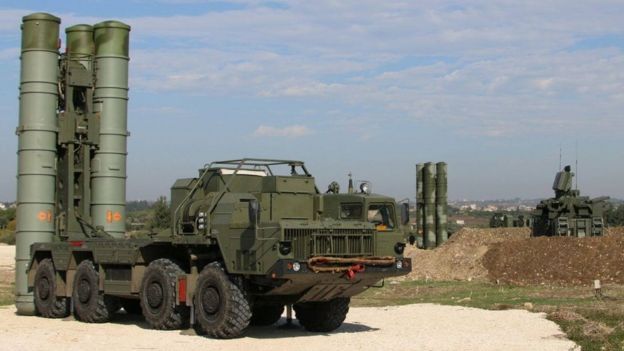 The Brics summit in the Indian resort state of Goa concluded on Sunday with a joint declaration which was as anodyne as such documents tend to be.
The Brics summit in the Indian resort state of Goa concluded on Sunday with a joint declaration which was as anodyne as such documents tend to be.
Though India made it a point to focus on terrorism and managed to underscore "the need for close coordination on tracking sources of terrorist financing and target the hardware of terrorism, including weapons' supplies, ammunition, equipment and training," it could not convince China to change its stance on Masood Azhar, leader of the Pakistan-based militant group Jaish-e-Mohammed.
The group has been blamed for attacks on Indian soil in the past, including the 2001 parliament attack in Delhi that took the nuclear-armed rivals to the brink of war.
China has twice this year blocked India's effort to get Masood Azhar declared a UN-designated global terrorist, despite Jaish being a UN-proscribed terror group.
Turbulent ties
Sino-Indian ties have been going downhill for the last few years and the future of Brics remains tentative at best because of this growing divergence.
But it was the other bilateral relationship- the one between India and Russia - that was the focus of the Goa summit.
China backs Brics' long term prospects
India and Russia to sign air defence deal
Where Sino-Indian bilateral engagement was perfunctory at best, the India-Russia relationship was given a big boost with Delhi reaffirming ties with its long-standing strategic partner.
India's ties with Russia have seen turbulence in recent weeks.
Despite India's opposition to Russia conducting its first ever join military exercise with Pakistan, especially at a time when Indian troops were also participating in bilateral military exercises in Russia, Moscow went ahead, raising concerns in Delhi about the future trajectory of Russian foreign policy.

Many believe that Moscow, for its part, has been obsessed with challenging the US and sees the growing US-India partnership as a threat.
At a time when America's ties with Pakistan are seen to be deteriorating, Moscow has agreed to sell Islamabad four Mi-35 attack helicopters and build a $2bn (£1.64bn) natural gas pipeline there.
During the Brics summit, India sought to re-engage Russia more substantively.
The two countries signed a swathe of defence deals, including a multi-billion dollar agreement for the delivery of a long range advanced air defence system to Delhi.
'Clear stand'
The Russian and Indian leaders also took part in a ceremony to lay the foundation for the third and fourth power units of India's Kudankulam nuclear power plant.
On the energy front, the two sides announced their biggest agreement, where a group led by Russian state-controlled oil giant Rosneft said it would pay $13bn for a controlling stake in both India's Essar Oil and the port facilities that it owns.
And to allay Indian concerns, Russian officials made it clear that Moscow has not signed any contracts and has no plans to sign any military-related deals with Pakistan.
The two states also reiterated their common opposition to terrorism.
Indian Prime Minister Narendra Modi underlined "Russia's clear stand on the need to combat terrorism mirrors our own."

"We deeply appreciate Russia's understanding and support of our actions to fight cross-border terrorism that threatens our entire region. We both affirmed the need for zero tolerance in dealing with terrorists and their supporters," he said.
For an estimated $100bn upgrade of its mostly Soviet-era military equipment, Delhi has been looking largely at the West for cutting-edge technologies.
Though there has been dissatisfaction in sections of the Indian military and policy-makers at the manner in which Moscow has handled its defence contracts in recent years, there is a recognition of the need to have strong ties with Russia as it has been one of the few states willing to share 'strategic technologies' with India including aircraft carriers and nuclear submarines.
Russia under President Putin is determined to position itself as a major global player and is enhancing its ties with China to gain leverage in its ties with the West.
'Old friend'
Similarly, in South Asia, Russia wants to reposition itself if only to caution India of cosying up to Washington at its expense.
Delhi too is reimagining its foreign policy priorities under Mr Modi.
For the prime minister, strong Indo-Russian ties go a long way in blunting his domestic critics who see a pro-US tilt in his foreign policy.
During his joint press conference with the Russian President Mr Modi said in Russian, "stariya droog luchhey novikh dhwukh (an old friend is better than two new ones)."
This remark was aimed at both Russia which has been giving a fresh look to its ties with Pakistan as well as at those who have been questioning his commitment to India's old partners like Russia.
As of now, India and Russia have succeeded in re-establishing "the special and privileged nature" of their strategic partnership.
But whether this would be enough to sustain the Cold War era strength of this bilateral partnership remains to be seen.
Harsh V Pant is a Distinguished Fellow at Delhi's Observer Research Foundation and Professor of International Relations, King's College London.
No comments:
Post a Comment